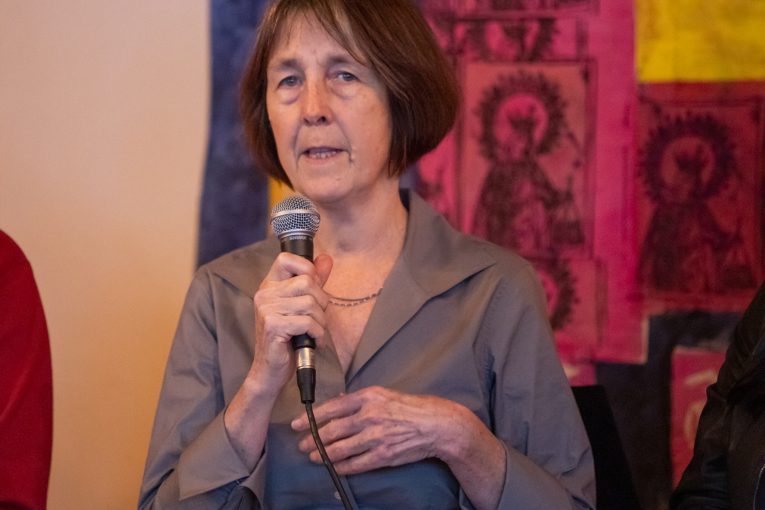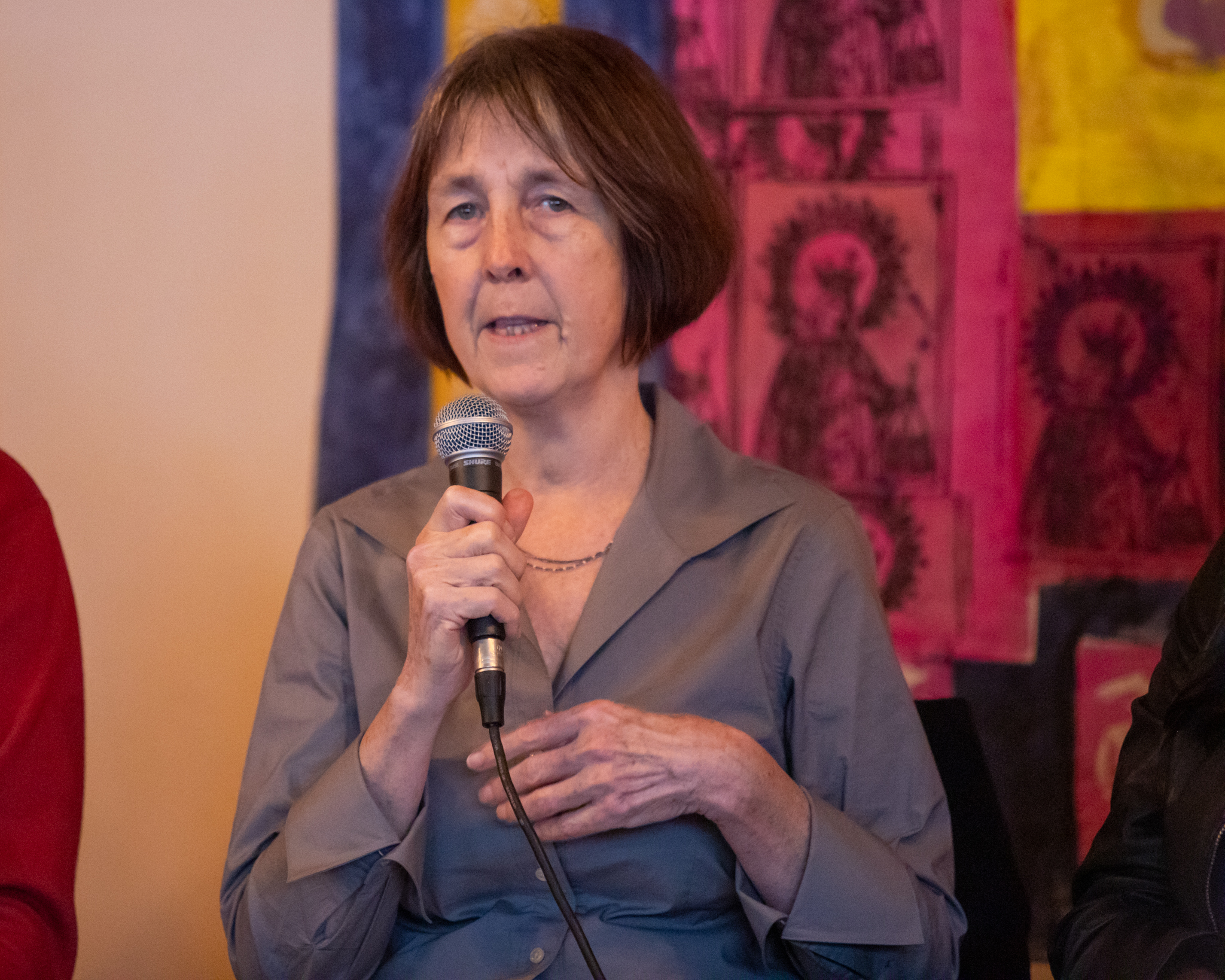

By Julian Verdon and Linhchi Nguyen
SAN FRANCISCO – A law that was supposed to allow people convicted of felony murder to have their sentencing reconsidered has been misapplied by the courts, the authors of the 2018 legislation claimed in an amicus brief filed on Monday.
State Senator Nancy Skinner and Kate Chatfield, the policy director of the Justice Collaborative, filed an amicus brief in the California Supreme Court for Senate Bill (SB) 1437 on Monday. In their brief, they argued that it recently came to light that courts had not appointed counsel for defendants and have summarily denied petitions for resentencing in a misinterpretation of the statute.
SB 1437 made significant changes to the California penal code regarding who gets charged with felony murder. It changed the old felony murder rule, which stated that a person is guilty of felony murder if they participated in a serious felony (carjacking, robbery, etc.), and a victim died during or as a result of that crime.
Under the new felony murder rule, an individual can only be guilty of felony only if they were the actual killer, a major participant in the crime, or acted in reckless indifference to human life.
If an incarcerated defendant believes they do not qualify for felony murder under the new law, they can petition for a resentencing.
Resentencing does not necessarily mean that the defendant gets their sentences reduced, rather it is up to the judges’ discretion of how their petition will be processed.
That is how SB 1437 was supposed to work. But it hasn’t necessarily been the case, said Skinner and Chatfield in their amicus brief challenging how appellate courts were misinterpreting the statute.
They argue tht “trial courts and appellate courts are misinterpreting the statute and denying people the right to counsel when the legislation clearly mandates this frustrates the intent of the Legislature.”
As a result, some lawyers began soliciting incarcerated individuals to do their petitions for fees of up to $12,000. The legislation, however, made it clear that every person should have the benefit of legal representation – retained or appointed.
The pleading maintains that courts who “refuse to appoint counsel upon the filing of the petition requesting counsel” or “summarily deny petitions – except for a failure to set forth the information specified in section 1170.95” or who “make factual determinations and weigh evidence at the prima facie briefing stage” – are “violating the plain language of the statue and frustrating the legislative intent to ensure that those who are entitled to relief receive that relief.”
The courts under the new law, claims the filing, are required to appoint counsel for petitioners under the law – though nothing prevents petitioners from hiring their own private counsel.
But in the brief, Skinner and Chatfield said this is not happening. Not following the requirement to appoint counsel for all petitioners may leave the petitioner vulnerable to solicitations by lawyers who ask for an extremely high cost for their service.
“After the law was signed, and despite its mandate to appoint counsel upon request, some lawyers began soliciting incarcerated people and their families to file petitions for relief,” they said.
“We’re hearing that lawyers are soliciting prisoners for re-sentencing petitions @ $12K,” tweeted Assemblymember Lorena Gonzalez shortly after the legislation passed in 2018.
The amicus brief insists that “Although this tweet was sent after the legislation was signed by Governor Brown, it reflects the Legislature’s unambiguous intent to have counsel appointed for petitioners at the outset of proceedings.”
The brief, recognizing that the vast majority of those eligible for relief are in prison, notes “The vast majority of those eligible for relief under section 1170.95 are in prison, and inferentially, the vast majority of them lack the financial resources to hire attorneys to file petitions and brief their eligibility on their behalf…those in prison may not be present in court.”
“(T)he Legislature took great care to ensure that every person filing a section 1170.95 petition has the benefit of legal representation – retained or appointed – before any court makes a dispositive determination ruling on their petition.
“That trial courts and appellate courts are misinterpreting the statute and denying people the right to counsel when the legislation clearly mandates this frustrates the intent of the Legislature,” they continue.
The brief suggests that the Legislature intended to provide equal justice to all people potentially eligible for relief, and they knew it would be critical to allow for the appointment of counsel in this process. This is why the petition requirements were kept simple, and it was anticipated that a form petition could be submitted.
The legislative history indicates that trial courts do not have the power to summarily deny petitions except as described by the law, and Skinner and Chatfield said in their pleading that the Judicial Council wanted judges to have the ability to summarily dismiss the petition for resentencing without appointing counsel and without hearing from the parties involved.
“This amendment was not only not accepted, but during the amendment process, the legislation was amended to clarify that the court should not take on such an initial gatekeeping role,” charged Chatfield and Skinner.
The legislation’s drafters argued that determining a defendant’s eligibility without the appointment of legal counsel could lead to incorrect denials, and the bill’s authors intended that petitioners currently incarcerated need counsel when collecting the necessary information to support their request for resentencing.
In fact, courts recently have been denying petitions for resentencing by claiming that the legislation calls for two prima facie hearings. Prima facie refers to whether a case can qualify at first glance.
Skinner and Chatfield disagree, and wrote, “The court shall review the petition and determine if the petitioner has made a prima facie showing that the petitioner falls within the provisions of this section. If the petitioner has requested counsel, the court shall appoint counsel to represent the petitioner.
“The prosecutor shall file and serve a response within 60 days of service of the petition and the petitioner may file and serve a reply within 30 days after the prosecutor response is served. These deadlines shall be extended for good cause. If the petitioner makes a prima facie showing that he or she is entitled to relief, the court shall issue an order to show cause.”
The amicus brief insists that courts that used the first sentence about prima facie as evidence of a separate determination are actually misinterpreting the statute, and that there are not two separate prima facie hearings in the statute, just one. And courts cannot deny the petitioner’s request in the “first” prima facie determination because there is only one.
Moreover, the Legislature, the writers said, outlined that the courts cannot deny unless the defendant has an appointed counsel.
“In connection with this, [the courts] also ignore that the statute does, in fact, set explicit limits on the court’s power to summarily dismiss petitions prior to appointing counsel and prior to briefing,” according to the filing, which notes that the only time the courts can deny a petition is if the petition is missing the required information.
Therefore, the pleading reads, the courts that have denied petitions on such grounds or failed to appoint the appropriate defense for defendants have stalled the legal process for those trying to receive relief.
 Linhchi Nguyen is a fourth year at UC Davis, double majoring in Political Science and English. She currently lives in Sacramento, California.
Linhchi Nguyen is a fourth year at UC Davis, double majoring in Political Science and English. She currently lives in Sacramento, California.
Julian Verdon is a senior at UCLA majoring in English. He is from Los Angeles California.
To sign up for our new newsletter – Everyday Injustice – https://tinyurl.com/yyultcf9
Support our work – to become a sustaining at $5 – $10- $25 per month hit the link:
